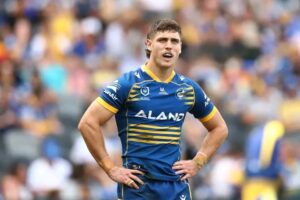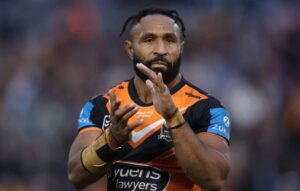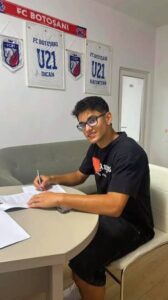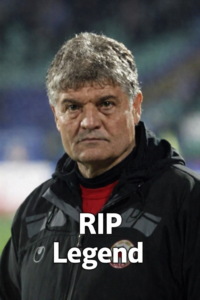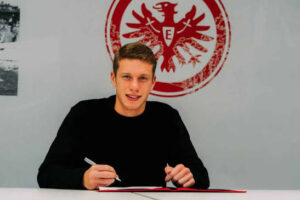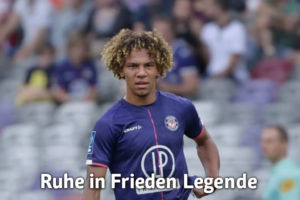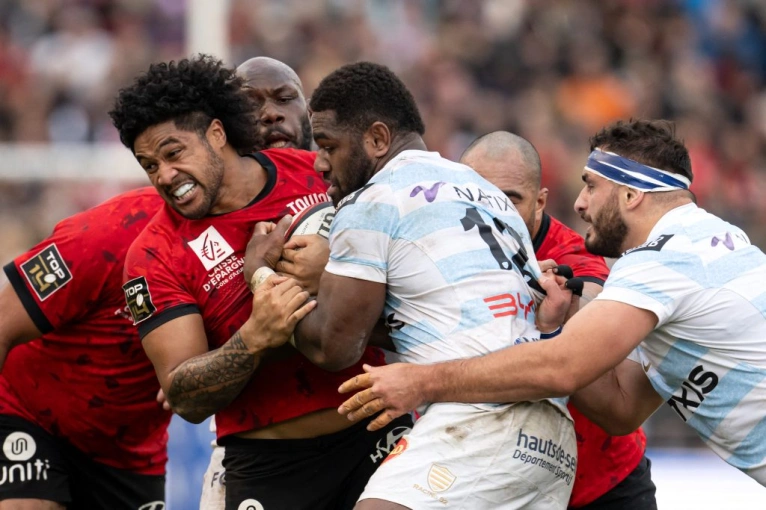
Should I go or not? The question is that. Kiwi players who play overseas are engaged in a mental tug-of-war over the power struggle over eligibility requirements for All Blacks selection.
Razor Robertson wants to see more latitude in the regulations, but the national tendency is to hunker down and maintain the system that has worked so well for New Zealand for so long.
Leicester Fainga’anuku, a former Crusaders winger, is the most recent to experience a reciprocal attraction. Fainga’anuku hopes to return home in time to argue for a spot in the 2027 World Cup, but he signed an 18-month contract with Top 14 powerhouse Toulon.
In a recent interview, he was blunt about the choice’s paradoxical character.
“There is no doubt that I will miss this place. Toulon, the Top 14, and every man I’ve played with have all been amazing.
“I enjoy playing in New Zealand, but I like the Top 14 in rugby.”
“I had to make a tough decision. I had to return home to be with my wife and family. With the birth of my child, it was even more crucial that we return home. My son will be surrounded by his family as he grows up.
“You are as familiar with the regulations as I am. I am unable to be selected for the All Blacks while I am overseas due to strict regulations. One of the benefits of returning to New Zealand is also that. I am able to provide the All Blacks with my skills.
When Wallaby outside-half Noah Lolesio spent a life-changing time with the same team on the Côte D’Azur as a Rugby World Cup 2023 medical “joker,” he discovered that the allure of the Top 14 is about much more than simply money. “Probably the most critical experience I’ve had so far in my career,” he said of the three-month assignment.
The Brumbies were forced to leave the rugby hothouse and return to the real world, where there is a life outside of rugby, after being exposed to a more laid-back and open way of life in France.
“As I’ve probably done in the past few years, I’ve tried to bring my French approach back to the Brums and really relax, just enjoy it, and not put so much pressure on myself,” he remarked.
It is difficult to deny that it has improved his performances for the Wallabies under Joe Schmidt. After years of drifting in a hypertense wasteland of “what ifs?” the Canberra playmaker is rapidly becoming the 10 that every Australia supporter imagined he would become, solidifying his position as a starter.
Fainga’anuku underwent a transformation through a change of role. Although he was predominantly considered a power flank in New Zealand, he has played 18 of his 23 games at centre in France, and he has worn the number 13 shirt solely at the legendary Stade Mayol this season. Though it didn’t happen often enough in Christchurch, he had always thought about the switch.
“I always imagined that I would move to the centre one day. I had the chance to do it in New Zealand already, but the staff and [head coach] Pierre [Mignoni] gave me a somewhat longer stay. It was an honour, and I was grateful for the chance.
“I believe my impact on the game is greater. You are better able to control the game’s momentum and have stronger bonds with your teammates. I adore that you believe you can assist them! I now aim to maintain both aspects by being able to play both in the centre and on the flank.
“I now know what a centre or winger is supposed to do. However, I am always prepared to play on the pitch, regardless of my position.
New Zealand has consistently produced a large number of excellent back three players, and occasionally it has selected some unlucky situations to turn a full-back or wing into a second five-eighth or centre. Christian Cullen, Leon MacDonald, and Mils Muliaina will tell you everything you need to know about that tale. Ian Foster’s All Blacks may have lost the opportunity to create a successful midfield formula in time for the 2023 World Cup because of the time spent experimenting with the pairing of a former full-back [David Havili] and a left wing [Rieko Ioane].
Robertson’s current preferred back three, Ioane and Jordie Barrett, are another change, but at least one of them has said exactly what Fainga’anuku has said. Barrett claimed that nothing has changed with his new team, Leinster, and that he was “most comfortable” playing at second five-eighth when still in New Zealand.
Since I consider myself as a number 12, I would like to believe that I am capable of playing 15. Since moving into the midfield with the All Blacks and the Hurricanes, I still prefer playing at 15, even though I believe my value is at 12.
In France, speed and the back three skillset tend to remain on the periphery, whereas in New Zealand, they frequently move inside. Power stays where it counts most: in the centre of the field, where it can better control the flow of games and maintain the strongest connection with its teammates.
I think Fainga’anuku will be starting at centre for the national team when he returns to New Zealand in time for the 2027 World Cup. Razor will benefit from that approach in two ways: it will enable Leicester to re-establish contact with Richie Mo’unga and expedite the magician’s return from Japan; additionally, it will motivate Jordie Barrett to assume greater playmaking responsibilities by establishing a stronger presence alongside him.
Fainga’anuku led the team in tackle-busts with 32 despite playing in just seven of Toulon’s first 13 games in the Top 14. He should break tackles down the middle of the field, which is where you want him. Crusaders should go first, ideally off Mo’unga.
The most recent iteration, which resulted into Toulon wearing the number 13 shirt, happened during the team’s most recent home match against Racing 92.
A good touch on the left-hand offload strengthened the team’s ability to crush the opposition’s 10-channel, and RCT scored quickly in the following possession phase.
Fainga’anuku carries similarly to Ardie Savea on the back line, and his ability to create metres after contact makes him useful on pick-and-go (where the Christchurch team exploited him so well), short passes close to the ruck or down a slim short side.
Despite starting from a position on the sidelines, Fainga’anuku is a natural jackal on defence. Despite getting little playing time for his new team, he has already had four pilfers at the breakdown in his first 11 games for RCT. This placed him 10th in the league overall and just one spot behind Lewis Ludlam, an Englishman who is the greatest operator in that region for Les Rouges et Noirs.
Fainga’anuku, like Savea, gets stronger the lower he plays to the ground, both on attack and defence. His power, which is more appropriate near the core of the activity, is only increased by contact with the soil.
With Fainga’anuki’s imminent comeback, New Zealand has an opportunity to break the current trend of trying to force three unlikely and potentially unwilling talents back into midfield. Rieko Ioane is currently the incumbent at number 13, although some prominent former All Blacks have properly questioned his eligibility for the position.
After New Zealand’s first tour loss to France in November, Israel Dagg said: “Defensives are aware of Rieko’s speed and ability to break on the outside.
You witnessed him attempting to get the ball on an outside burst and continuously beat Gaël Fickou on the outside. He will only defeat you on the outside, thus if I’m a defender, I stay on his outside.
“As a centre, Rieko doesn’t really appeal to me. He is a fantastic athlete and player. Has he been able to perform on the pitch despite a busy couple of weeks off it [because of the Johnny Sexton social media feud]?
A defender must be aware of Fainga’anuku’s ability to plough through all but the most precise and forceful challenges, straight forward, even when the wing who prefers to play centre can outpace him on the outside with speed and fend.
According to his encounter with Toulon, power has a home at 13. There will always be a welcome on the Riviera if Razor is unable to utilise the international makeover that has already taken place. According to Pierre Mignoni, “I am acquainted with Scott Robertson.” When [Leicester] joined here, he had previously told me that he was young and that he wanted to get him back. Perhaps I will be able to win him back in the future.
